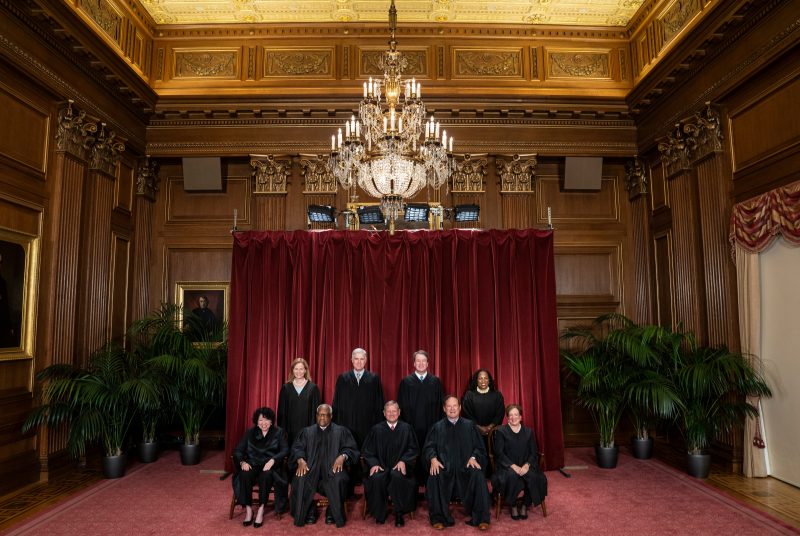
Supreme Court makes it easier to challenge structure of federal agencies
The Supreme Court on Friday made it less daunting to challenge the regulatory power of federal agencies, easing the way for constitutional challenges of both the Securities and Exchange Commission and the Federal Trade Commission.
The court was unanimous on a seemingly mundane question: whether someone singled out for enforcement action by either agency can go directly to federal court to challenge the constitutionality of the process.
In complaints against both agencies, the plaintiffs allege that in-house administrative law judges are not appointed in ways that square with the Constitution. The accused don’t want to wait for final agency action to begin their challenges.
In announcing her decision for the court, Justice Elena Kagan cautioned that she and her colleagues in the majority “don’t say a word” about the larger constitutional issues. But they agreed the suits making the challenge could go forward in federal court.
Lawyers for accountant Michelle Cochran, bringing the challenge in the SEC case, and body-camera manufacturer Axon Enterprise Inc. in the FTC case, said their clients should not have to undergo years of litigation before being able to challenge the constitutionality of the administrative law judges and, thus, the agencies’ enforcement actions themselves.
Kagan agreed: “Cochran and Axon will lose their rights not to undergo the complained-of agency proceedings if they cannot assert those rights until the proceedings are over.”
The Biden administration had contended Cochran and Axon could make their arguments in a federal appeals court only after they went through commission proceedings.
The larger context for the cases is a battle by business interests to weaken the federal administrative state, and the plaintiffs hoped to build on a string of Supreme Court decisions that have advanced that cause. The importance of the issue was underscored by amicus briefs by industry groups and the fact that two former Republican solicitors general were representing Cochran and Axon.
“We are thrilled that the Supreme Court has unanimously vindicated Michelle Cochran’s right to have her day in court to challenge the constitutionality of the administrative apparatus she has fought for nearly a decade against the SEC,” said Cochran’s lawyer Gregory Garre.
Kagan’s decision did not go far enough for two of the court’s more conservative justices.
“I have grave doubts about the constitutional propriety of Congress vesting administrative agencies with primary authority to adjudicate core private rights with only deferential judicial review on the back end,” wrote Justice Clarence Thomas. He added, “In an appropriate case, we should consider whether such schemes and the appellate review model they embody are constitutional methods for the adjudication of private rights.”
Justice Neil M. Gorsuch agreed with the outcome of the case, but not the majority’s reliance on a 1994 precedent about when courts can hear certain challenges. He would have ruled for the plaintiffs on other grounds, and said the precedent that the court relied upon in part should be overturned.
The cases are Axon Enterprise, Inc. v. Federal Trade Commission and Securities and Exchange Commission v. Cochran.
